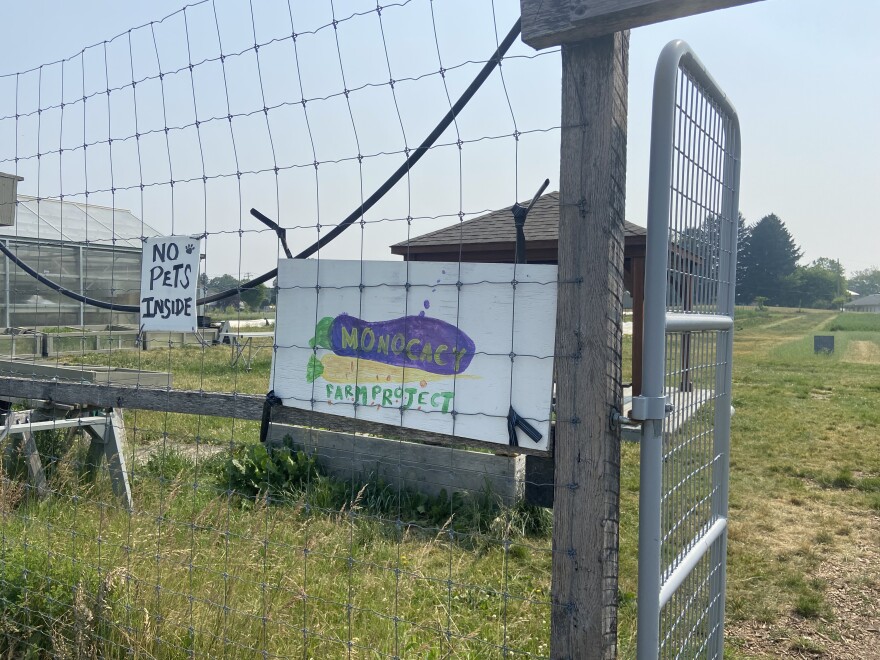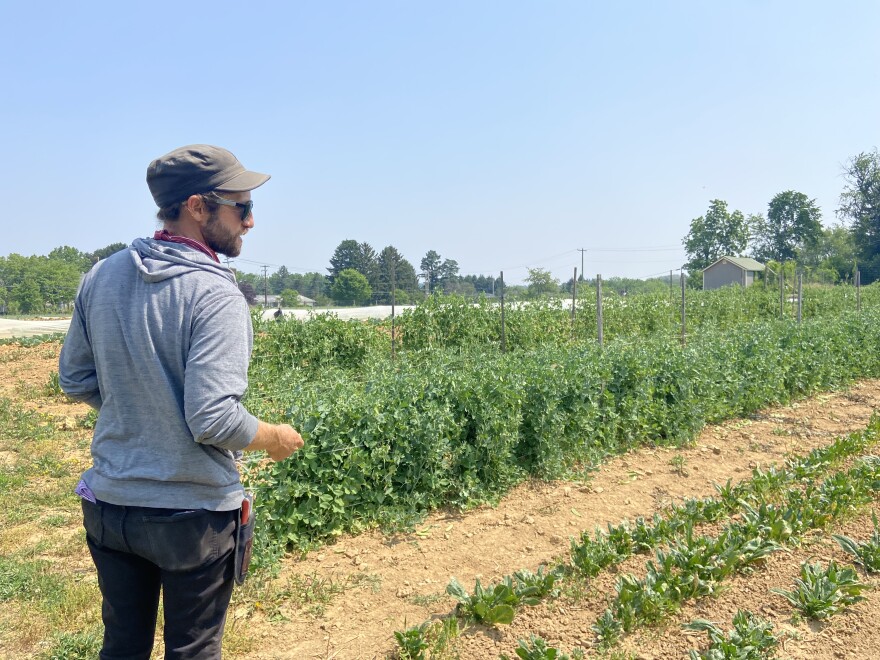BETHLEHEM, Pa. — It took about three years for earthworms to reappear in the field off Bridle Path Road, where The Monocacy Farm Project put down roots.
- The Monocacy Farm Project in Bethlehem is celebrating 10 years
- The farm offers pick-your-own produce and also helps support area food banks
- With four on staff, the farm depends on volunteers
The farmer who leased the land had grown corn using conventional methods, including herbicides and artificial fertilizers, explained Sister Bonnie Kleinschuster, project director.
“Over a number of years, it took a toll on the soil,” Kleinschuster said. “We made the decision to do something sustainable and that would serve persons who are impacted by food insecurity.
“That's where the concept came from for the project and then it grew slowly — and then all of a sudden, it started growing very quickly.”
The Monocacy Farm Project is marking a milestone this year — 10 years of hard work and growth, all to support the Lehigh Valley’s hungry while spreading awareness and education about sustainable farming practices. Looking back on the decade behind them, project leaders said there’s much to celebrate, but also more work to be done, especially as food insecurity persists.
“I'm seeing the sort of healing happening,” said Eli Stogsdill, a project manager and farmer who joined the project in 2018. “We've been expanding our capacity and also our agro-ecological approach and the tools that we have in order to grow with the land rather than force the land.”

Owned and managed by the School Sisters of St. Francis, the project includes an apple orchard, community gardens, production fields and demonstration gardens. The project’s “Grow Healthy Community” initiative provides free fruits and vegetables each week to area food pantries, soup kitchens and homeless shelters.
There’s also a pick-your-own program, based on suggested donations.
“What people give to us then supports us to give to people who can't pay for it in the emergency food system,” Stogsdill said. “We have for many years been giving food without getting revenue.”
Organizations filling the gaps for those across the region in need of fresh, healthy produce are needed, especially over the last few months. In March, almost 100,000 of the Valley’s residents who rely on the Supplemental Nutrition Assistance Program had their benefits cut.
Communities with successful, collaborative gardens combat food insecurity, both in quantity and quality; guild on the resources of cities, towns and counties to deal with urban problems; fight climate change by reducing the distance food travels, and minimize the carbon footprint of food; boost the local economy; improve community health through better nutrition and increased physical activity; and create social capital, according to the Soil Science Society of America.
“In short, community gardens build stronger and safer communities,” according to the organization’s website.
The project’s mission, Kleinschuster said, is focused on feeding the hungry, caring for the Earth and growing a healthy community.
"That growing healthy community piece, I think, is so important too, because it's not us and creation — we are all creation, with the environment."Sister Bonnie Kleinschuster, project director at The Monocacy Farm Project
“That growing healthy community piece, I think, is so important too, because it's not us and creation — we are all creation, with the environment,” she said. “It's that relationship and we've had good relationships growing with faith organizations and secular organizations that value what we do and believe in the future for the generations that will come.”
With a staff of four, the project relies on volunteers and business as well as community groups to help, especially during the growing season.
“We have many different volunteers of all ages and abilities who come and help with the work on the farm,” Stogsdill said. “And then other people who come and contribute in different ways, like planning fundraisers.”
It’s truly a community effort, he explained.
“We both accept support from all and recognize that we're not experts in everything,” he said. “And other people have skills and abilities that they can lend to us. And even if they don't know how to grow a vegetable, they probably have skills that are useful to us and ways that we can collaborate.”


